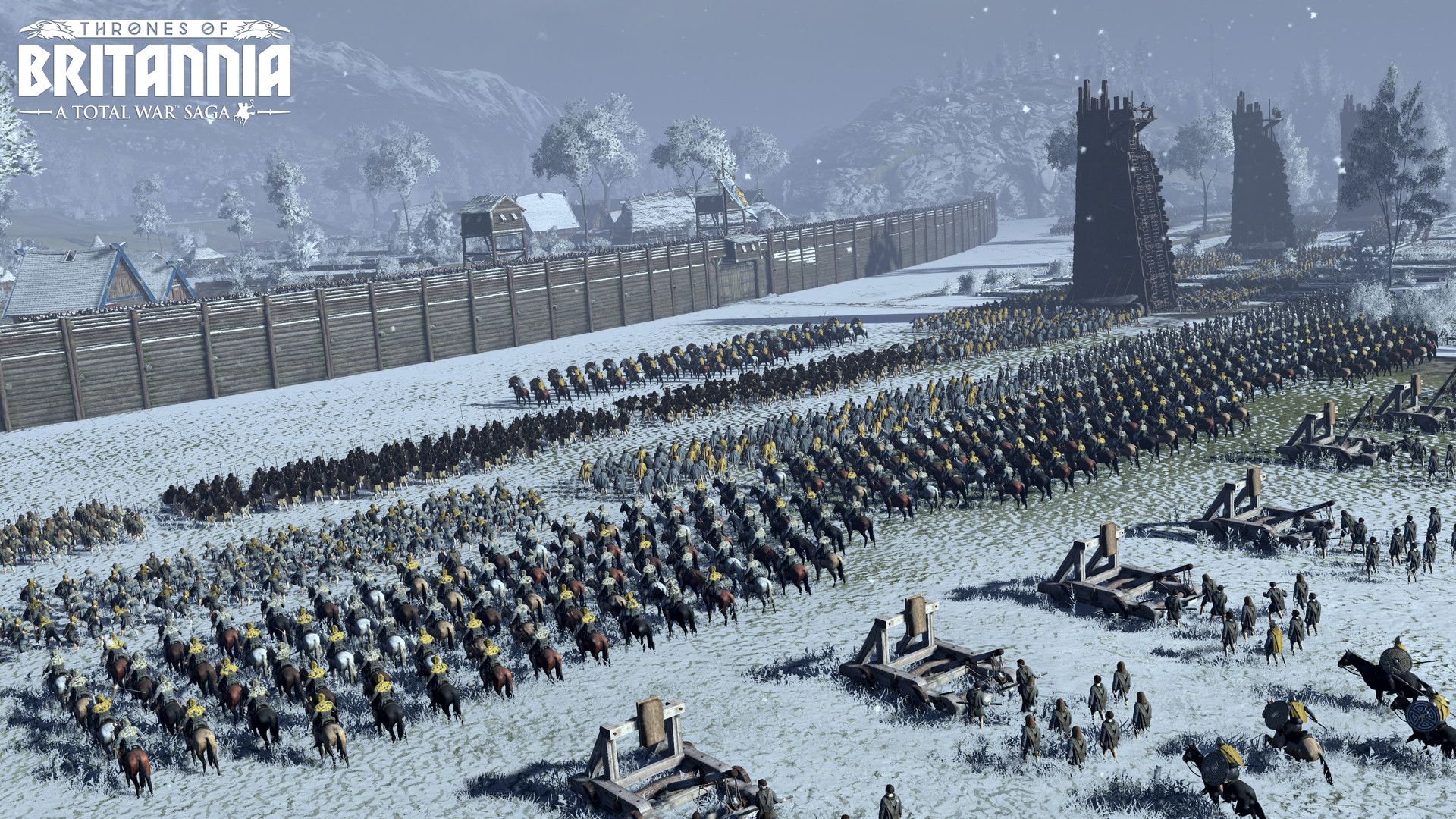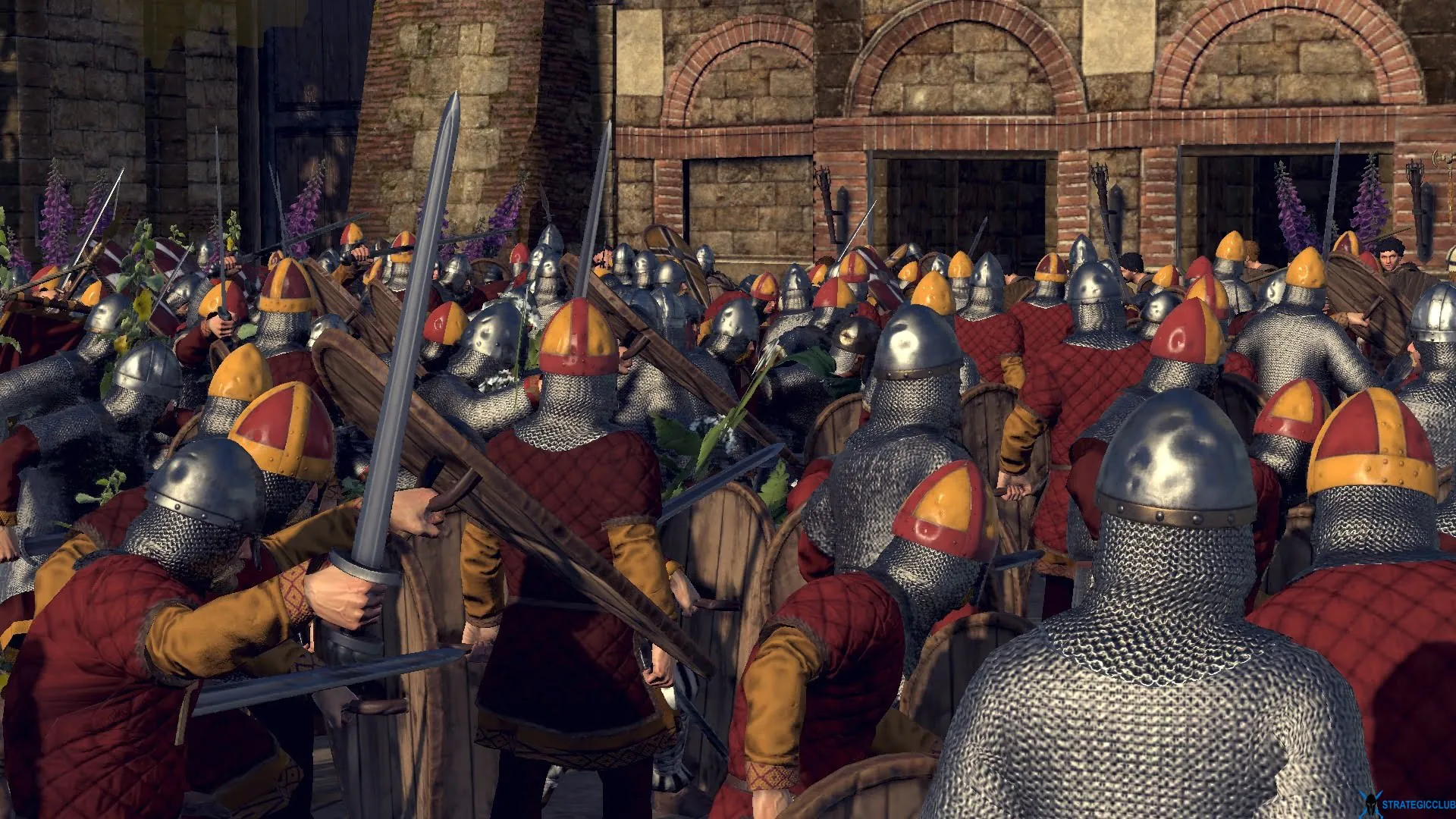

I did the latter, and apparently this second snub caused his co-plotters to turn against him and murder him instead, which proved a satisfactory, if rather extreme, solution. A few turns later, rumours began to circulate that he was plotting against me, and I could choose either to pay him off or ignore the rumours and further lower his influence. In fact he got so upset he earned the trait 'Vengeful'. Shockingly, this didn't go down well with the noble in question. Playing as Alfred's Kingdom of West Saxe, early in my game one noble's influence began to rank worryingly highly, so I stripped him of an estate to knock it back down. The aim of this system, clearly, is to imbue within Total War some of the compelling emergent stories that made Crusader Kings II a huge success. And if a noble's influence starts to rival your own, then you might want to think about taking them down a notch by removing an estate, publicly snubbing them with the “lower influence” ability, or in worst case scenarios, assassinating them outright. You can gain a person's loyalty by bestowing upon them an honourary title, awarding them a nice country estate, arranging a marriage (or sometimes annulling one), or simply bribing them.Īll of these approaches will likely increase their influence, however. To maintain a firm grasp on your leadership, you need to ensure that your Court members have high loyalty to you but lower influence than you, a balancing act that isn't always easy.

These are Influence, which governs how much clout a person carries within their faction, and Loyalty, which dictates how committed a faction leader's subordinates are to him. Meanwhile, most faction members share several key stats. All of these men (and they are nearly all men women do feature in the game, but primarily as marital bargaining chips and producers of heirs) posses their own unique traits that are intended to define their personalities. Your faction leader is surrounded by a court of nobles that includes your extended family, your army generals, and your provincial governors. Threats can now emerge from within, thanks to the game's new system of political intrigue.

After your first few turns, however, it'll quickly become apparent that the strategic minutia of Thrones of Britannia are very different.įor starters, your enemies no longer solely exist outside your borders. You build your economy and move your armies around on the turn-based campaign map, while fighting pitched battles and city-sieges in real-time. The game lets you choose whether to take up Alfred's mantle, striving to unite the various Kingdoms under the flag of England, or disrupt history by controlling one of several other factions, including the Kingdoms of Mercia and Northumbria, two flavours of Viking, and several Celtic factions hailing from Scotland, Ireland, and Wales.Īt a broad structural level, Total War Britannia is business as usual. Thrones of Britannia takes place in 878 AD, commencing just after Alfred the Great smashes a huge Viking Army at the Battle of Edington. And although as an experiment it isn't entirely successful, there are some areas where Thrones of Britannia might just be the best game in the series. In some ways it's strikingly innovative, radically altering mechanics revolving around army recruitment and how provinces work, and introducing a brand new, Crusader Kings' II-style system of political intrigue.īasically, it's an experiment, trying out a bunch of new ideas on a smaller canvas and at a reduced price. Unlike Shogun II, however, Thrones of Britannia isn't all about refinement. This is probably why The Creative Assembly has addended the title of this Total War with the word Saga, so that nobody goes in expecting a continent-spanning conflict only to find themselves in the Total War equivalent of a fight in a pub car-park.Ĭlearly I'm being facetious, but in some ways Thrones of Britannia is undoubtedly a return to historical basics, featuring a smaller, Shogun-like campaign map, turns spread over seasons rather than years, and a narrower unit roster that mostly revolves around the traditional trio of infantry, archers, and cavalry. After the extravagant spectacle of Total War: Warhammer (and its sequel), making your next game as strikingly small-scale and unusual as Thrones of Britannia is a bold move, like following up a holiday to Disneyland with a weekend in Bognor Regis.


 0 kommentar(er)
0 kommentar(er)
